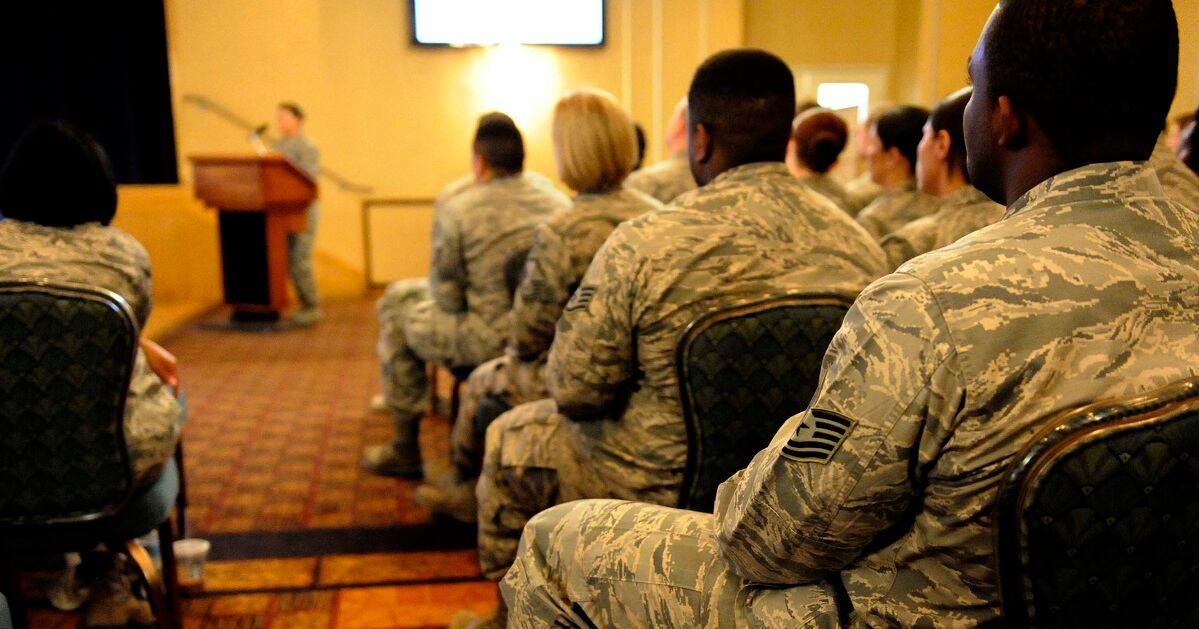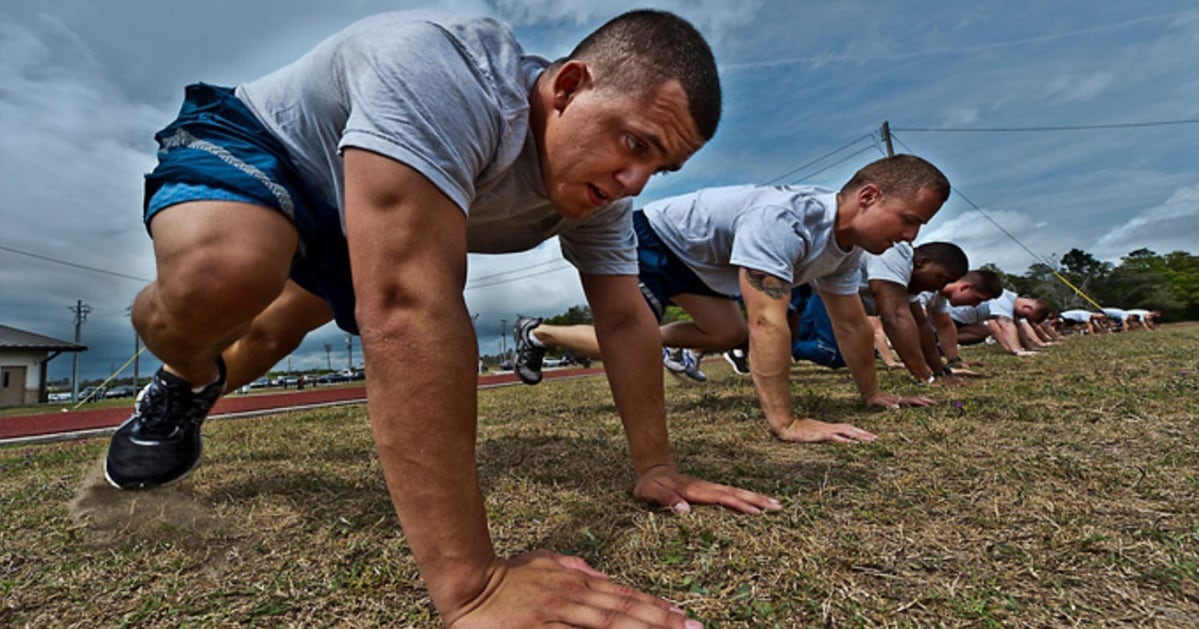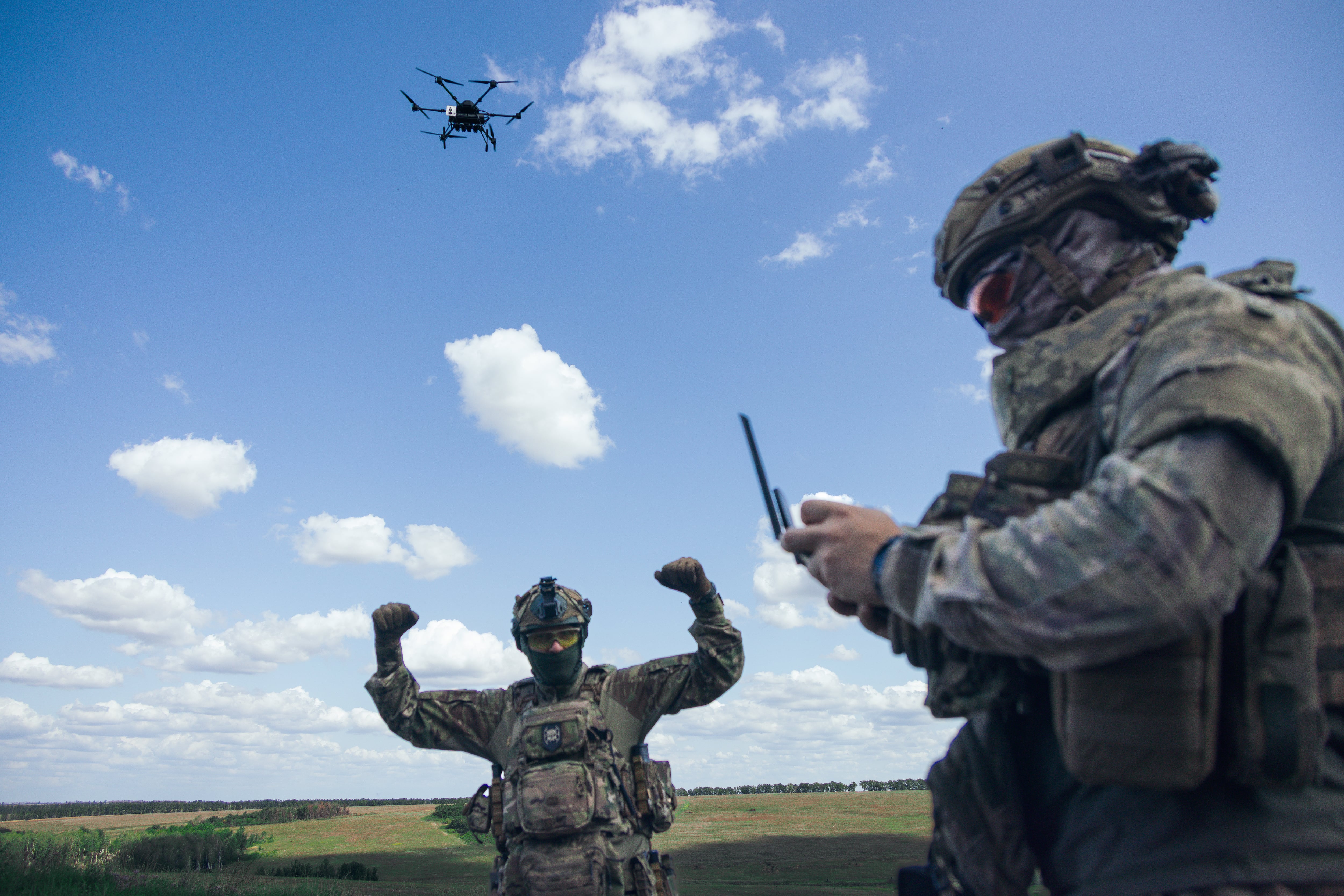Big changes to the enlisted evaluation process, physical fitness testing and re-enlistments are on the agenda in the coming year for Chief Master Sergeant of the Air Force Kaleth Wright.
In a Sept. 3 interview, Wright said that the Air Force is working on potential tweaks to the enlisted evaluation system reforms put into place in 2015. One of the biggest changes under consideration could be to drop Weighted Airman Promotion System, or WAPS, testing for staff sergeants and technical sergeants, Wright said.
The Air Force in February dropped WAPS testing for active duty senior noncommissioned officers in favor of a promotion board process. Air Force leaders said at the time that change was made to ensure performance is the top factor when choosing SNCOs. And Wright said earlier this year that dropping WAPS tests will help ensure that the wrong airmen don’t wind up in leadership positions, just because they’re good at taking tests.
Wright stressed that the Air Force is still in the beginning stages of looking at dropping WAPS for E-5s and E-6s, and that it requires much more research to make sure there would be no unintended side effects.
But if it does happen, he said it would probably come in 2021. There is also a chance it could be rolled out next year, Wright said, but that’s less likely.

“We want to make sure we get it right,” Wright said. “I’m not concerned about speed as much as I’m concerned about making sure we do the right thing for all of our airmen.”
The Air Force is also looking at emphasizing coaching, or more frequent formal feedback, in the enlisted evaluation process, Wright said. Today, airmen typically get formal feedback from their supervisors twice a year, he said, but he’d like to see that happen about once a quarter. That could also be enacted around the same time as the potential WAPS change.
And the Air Force is almost ready to announce a new system of “indefinite enlistments,” he said, which is likely to be finalized later in September.
This would automatically keep enlisted airmen in the Air Force, without the need for re-enlisting, once they hit 12 years of service, he said, until they decide it’s time for them to separate. When Wright first discussed this idea in 2017, he said it could reduce paperwork and unnecessary administrative burdens on airmen who want to stay in anyway.
Originally, Wright suggested indefinite enlistments could kick in at the 15-year mark. But in the Sept. 3 interview, he said the Air Force settled on 12 years, which is the same as how the Army handles it.
PT changes on the way
A physical fitness change first discussed by Wright last month — allowing airmen to take a practice examination early without being penalized if they fail — is likely coming a lot sooner than expected. Wright’s office originally had no timeline on that, aside from wanting to have it in place by the time he retires in fall 2020.
But now, Wright said, that could be in place in early 2020 — or maybe even before 2019 is done.
“We haven’t got the final decision, but that’s one of the things that I believe will come to fruition pretty soon,” Wright said.
Under the proposed “no-fail” test system, airmen could try their PT examination without worrying about a failure hurting or even ending their career, as long as they have time before it’s due. If airmen pass the test, including pushups, situps, a body composition assessment and a 1.5-mile run, it counts. But if airmen fail any component, it would be a “diagnostic” test telling airmen where they need to improve; it won’t count against them.
Wright said this system would also allow airmen to take their PT test when they think they’re in their best shape.
And the Air Force is considering separating the abdominal circumference portion of the test — known as the tape test — from the other three portions of the test. Currently, the tape test and the other portions are done on the same day, Wright said.
But this can lead to airmen getting sick or hurt. Some airmen take “drastic measures” to reduce their waist size, he said, such as starving themselves or taking diuretics or other substances to drop inches quickly.
When airmen take these “unhealthy” steps, Wright said, and then exert themselves on the same day to pass the run, situp and pushup components, it can lead to them getting sick, passing out or otherwise injuring themselves.
Wright said the Air Force may ensure the tape test and other components are taken at least seven days, but no more than 30 days, apart.
Living fit
Separating the tape test from the other portions won’t entirely stop airmen from engaging in such unhealthy practices to get slimmer, he said, but it could lessen the danger.

“It’s a huge concern,” Wright said. “What it really means for us is, we got to think about why airmen would decide to do this. A lot of it is because, as an Air Force, we’ve made failing the PT test such a punishing thing, and abdominal circumference counts for 20 percent of the actual score. And sometimes, it could be the one thing that causes someone to fail.”
“We know that separating the two doesn’t completely discourage airmen,” Wright continued. “If an airman wants a small waist, they’re going to do whatever they think they need to do to get a small waist for the test. But at least they won’t put themselves in harm’s way” by doing all components in the same day.
Wright said that he hopes airmen will focus more on living fit and healthy lifestyles throughout the year, and not focus on passing a test at a certain time. And he said leaders also need to make sure their airmen are leaving healthy lives.
“The test doesn’t make you any fitter,” Wright said. “I’d really like to encourage every airman to take your fitness and your health and your nutrition personal. It doesn’t matter if you’re a special operator, or if you’re an intel airman, or if you sit behind a computer in a comms squadron. We all need to, first and foremost, take responsibility for our fitness.”
The Air Force is still working on new PT uniforms, as well as changes to the maternity uniform, Wright said. Now, the service is in the middle of wear tests, but there’s no word on when they might be rolled out.
Stephen Losey is the air warfare reporter for Defense News. He previously covered leadership and personnel issues at Air Force Times, and the Pentagon, special operations and air warfare at Military.com. He has traveled to the Middle East to cover U.S. Air Force operations.





